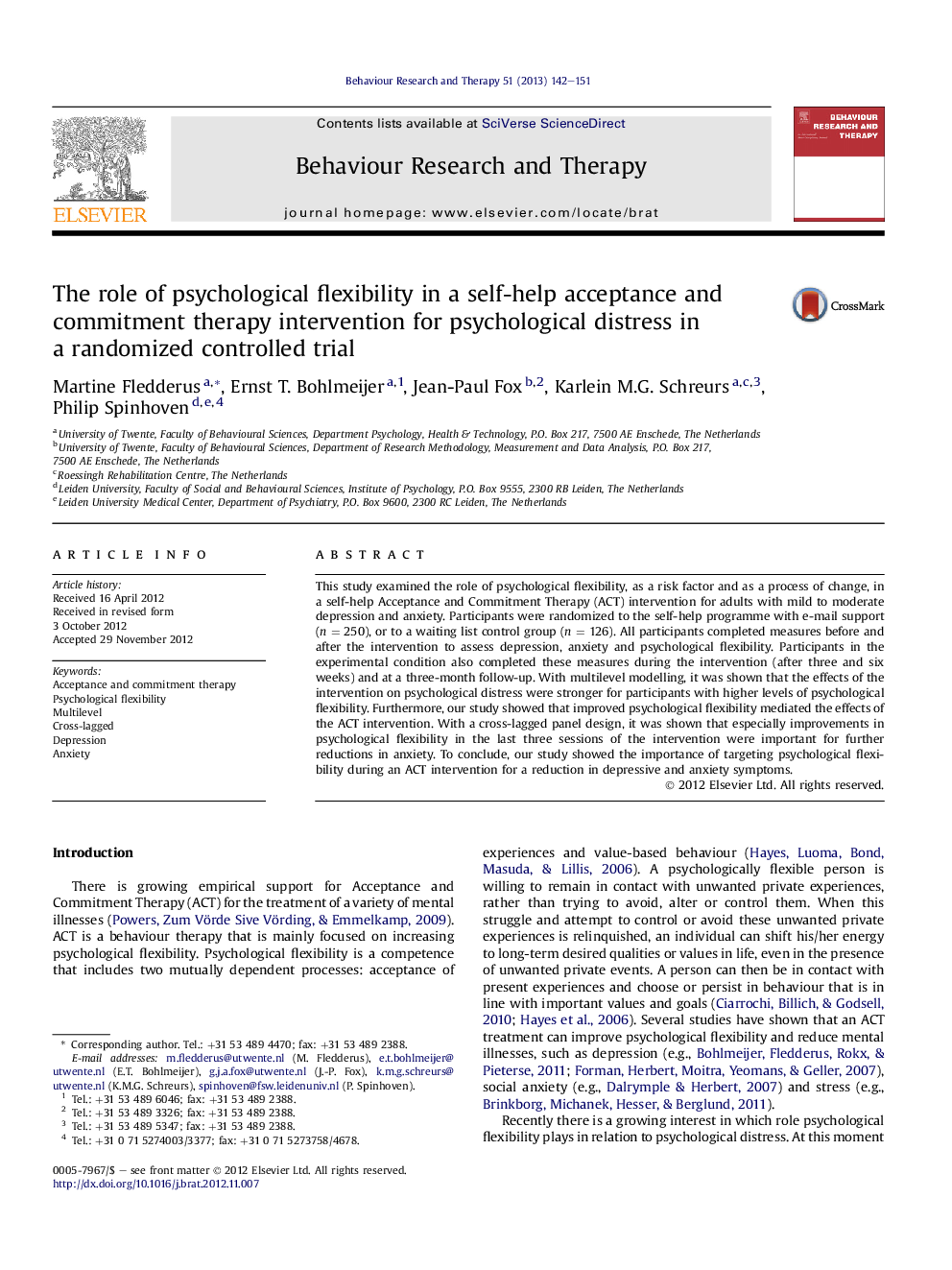| Article ID | Journal | Published Year | Pages | File Type |
|---|---|---|---|---|
| 901899 | Behaviour Research and Therapy | 2013 | 10 Pages |
This study examined the role of psychological flexibility, as a risk factor and as a process of change, in a self-help Acceptance and Commitment Therapy (ACT) intervention for adults with mild to moderate depression and anxiety. Participants were randomized to the self-help programme with e-mail support (n = 250), or to a waiting list control group (n = 126). All participants completed measures before and after the intervention to assess depression, anxiety and psychological flexibility. Participants in the experimental condition also completed these measures during the intervention (after three and six weeks) and at a three-month follow-up. With multilevel modelling, it was shown that the effects of the intervention on psychological distress were stronger for participants with higher levels of psychological flexibility. Furthermore, our study showed that improved psychological flexibility mediated the effects of the ACT intervention. With a cross-lagged panel design, it was shown that especially improvements in psychological flexibility in the last three sessions of the intervention were important for further reductions in anxiety. To conclude, our study showed the importance of targeting psychological flexibility during an ACT intervention for a reduction in depressive and anxiety symptoms.
► The role of psychological flexibility in an ACT intervention was examined. ► Intervention was offered to 250 adults with anxiety and depression symptoms. ► Higher levels of psychological flexibility were related to fewer symptoms over time. ► More psychological flexibility at end of intervention predicted less anxiety later.
